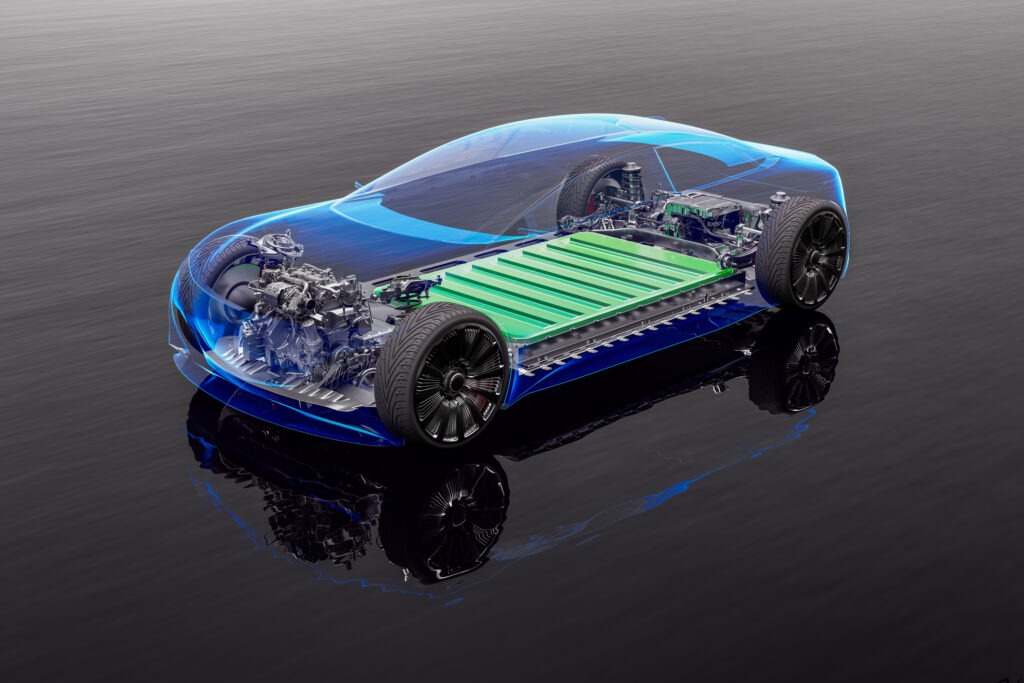BYD Qin Plus climbs global EV ranking in March
17 May 2024

Global electric vehicle (EV) registrations were up 19% year on year in March 2024, reaching more than 1.3 million new units. The BYD Qin Plus enjoyed particular success. José Pontes, data director at EV Volumes (part of J.D. Power), examines the results with Autovista24 editor Tom Geggus.
Global EV deliveries continued to grow in March. Battery-electric vehicle (BEV) registrations were up by 7% compared with March 2023. Meanwhile, plug-in hybrids (PHEVs) figures jumped 50%, making March the powertrain’s second-best month ever. Therefore, plug-in models made up 19% of the wider global new-car market, with BEVs taking a 13% share alone.
In the first quarter of 2024, the EV market share climbed to 16%, with BEVs making up 10%. All-electric models made up 65% of total plug-in registrations in March. This brought the BEV share in the first quarter to 63%.
BYD Qin Plus success
The Tesla Model Y held on to the lead in March with 118,985 registrations. It was followed, at a distance, by two BYD models. The BYD Song ended the month in second after recording 64,616 deliveries. Meanwhile, the Qin Plus finished March in third with a record 52,305 registrations. This put it ahead of the Tesla Model 3, which was relegated to fourth with 41,035 units.
BYD placed seven models in the top 10 in March, including the Destroyer 05 in eighth with 19,153 registrations. This is yet another model benefitting from BYD’s pricing strategy, which aims to compete with internal-combustion engine (ICE) vehicles. While Tesla and BYD occupied nine slots in the top 10, the Aito M7 managed to secure ninth, with 18,512 units.
Volkswagen (VW) Group placed two models in the top 20. The VW ID.4 ended the month in 13th with 13,650 registrations, while the ID.3 finished in 19th place with 10,167 deliveries. The Audi Q4 e-Tron was not too far behind, reaching 21st with 9,765 registrations.
Volvo enjoyed some success, albeit outside of the top 20. The EX30 hit 8,000 registrations in only its third month on the global market. The model can be expected to enter the top 20 soon, with deliveries continuing to rise. Meanwhile, the Volvo XC60 PHEV brought in a result of 9,626 registrations.
Another notable performance outside the top 20 was that of the Jeep Wrangler PHEV. The model scored 8,117 registrations in March, its best result since June 2021. This is a sign that plug-in hybrids continue to be popular in the US.
March momentum
In the first quarter of 2024, the Tesla Model Y kept an impressive lead ahead of the BYD Song in second, with over 116,800 units separating the two. However, there was a change to third place, based on the results of March.
The BYD Qin Plus benefitted from its momentum in March to surpass the Tesla Model 3 in the first quarter, reaching 112,222 deliveries. This performance could be short-lived, however. A new BYD Qin L is expected to land soon, with the potential to steal the thunder from the Qin Plus.
This would create an opening for the Tesla Model 3 to benefit from any BYD internal competition. However, the Tesla sedan is not having a good start to 2024, with global deliveries dropping 20% year on year. This is a worrying sign for a car which was quite recently refreshed.
In fifth, the Seagull/Dolphin Mini (73,069 units) surpassed the Aito M7 (69,592 units) which dropped a position to sixth. The BYD Yuan Plus/Atto 3 took seventh, less than 3,000 units behind the Aito SUV. The BYD Han jumped three positions to 10th (41,631 units) meaning six models from the brand made it into the top 10. The Destroyer 05 moved onto the table, ending the quarter in 13th (33,389 units).
The GAC Aion S (30,097 units) recovered some ground in March, jumping from 20th in February to 16th place. Thanks to another strong month, the Audi Q4 e-Tron closed in on the top 20, now fewer than 300 units behind the Geely Panda Mini in 20th (23,898 units).
BYD battles ICE
In March’s brand ranking first-place BYD, now deep into pricing out the ICE competition and other EVs, did not disappoint. The carmaker recorded 286,712 registrations. Its sales can be expected to keep rising steadily throughout the year.
Tesla’s delivery drop in the first quarter meant its March result presented little to celebrate. However, it did still achieve more than triple the sales of BMW in third.
Mercedes-Benz ended in fourth with a record 38,069 registrations. This was thanks to positive results across its long line-up. The brand’s EQA and EQB models scored around 6,000 units each, meanwhile, the recently introduced GLC PHEV achieved 4,200 units.
Another premium marque to post a record result was Volvo in sixth. Thanks to the ramp-up of the new EX30 and good numbers for the XC60 PHEV and XC40, the brand managed 34,651 registrations.
The second half of the table saw Toyota deliver a best-ever result, with 25,449 deliveries putting it in 12th. This was largely thanks to the positive results from the China-specific bZ3 (5,700 units) and the globally-available bZ4X (6,100 units). The brand can be expected to post record results this year, especially if attractive models like the bZ3C hit Toyota’s main markets.
Qiyuan has already found its way into the best-sellers table, despite its recent launch. It took 20th place with 15,207 registrations.
Outside the best-sellers table, Leapmotor (14,658 units), Peugeot (14,449 units), and Zeekr (13,647 units) ended close to the top 20. All these brands will be strong candidates to return in the following months.
Head to head
Ranking brands in the first quarter, BYD remained ahead of Tesla thanks to 584,714 deliveries. However, with 386,825 units the US brand reported three times as many EV registrations as BMW in third.
Wuling held on to fourth (108,833 units), while Mercedes-Benz benefitted from a record March, jumping two positions to fifth (93,383 units). Aito’s recent improvements encountered a rough patch as its rival, Li Auto took seventh (88,927 units). Aion saw the return to form of its Aion S and Aion Y models in March, allowing it to jump three positions to 11th (66,935 units).
The remaining highlights came from legacy brands. Kia rose to 14th (59,334 units) and Hyundai to 17th (50,190 units). Additionally, Ford returned to the best-sellers table in 19th (39,381 units) and Peugeot (35,619 units) did the same in 20th. However, Zeekr was only some 1,300 units behind, meaning the French brand’s recovery could be derailed.
Price-cut push
With brands gathered under manufacturing groups, first-place BYD gained market share thanks to its recent price cuts. It went from 17.3% between January and February to 19.4% in the first quarter, equating to 624,398 deliveries.
However, this is still down from the 21.3% recorded one year ago. Meanwhile, Tesla ended the quarter with a 12% share, although it held 16.5 % in the same period of 2023.
Third place went to Geely–Volvo, with the OEM dropping from 8.3% to 7.8%. Still, the group has recorded the most progress of the top five, going from 6.1% in the first quarter of 2023 to 7.8% so far in 2024.
Both fourth-place VW Group (6.4%, down from 6.5%) and fifth-place SAIC (5.9%, down from 6.4%) saw shrinking shares. Compared with the same period in 2023, the German OEM still fell, while SAIC progressed marginally.
Stellantis took sixth, down to a 4.3% share compared with 4.4% in the last report. However, it lost a more significant portion of the market compared to the first quarter of 2023 when it held 4.9%.
In the race for seventh place, BMW Group (3.8% share, down from 4% in February) was surpassed by Changan (4% share, up from 3.9%). In eighth, Hyundai Motor Company (3.5%) closed in on the two ahead.
Tesla holds BEV lead
Tesla remained at the front of the BEV market with a 19% share in the first quarter. However, this was down from 23.6% in the same period of 2023. Despite this, the US marque still held a comfortable lead over BYD, which took a 14.8% share. Yet with Tesla’s hold on the BEV market slipping, BYD could surpass it later this year.
Third place changed hands once again, with Geely–Volvo (7.4% share) surpassing SAIC (7.3% share) in fourth. Just 357 units separate the two. VW Group came fifth, with 6.7%. The German OEM is looking to reach the two groups ahead of it but still has a way to go. Meanwhile, sixth-place BMW Group (4.1%) is still a safe distance away.



